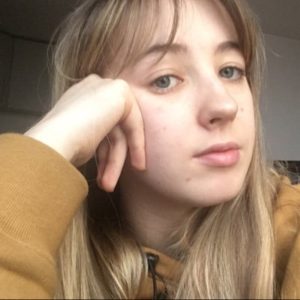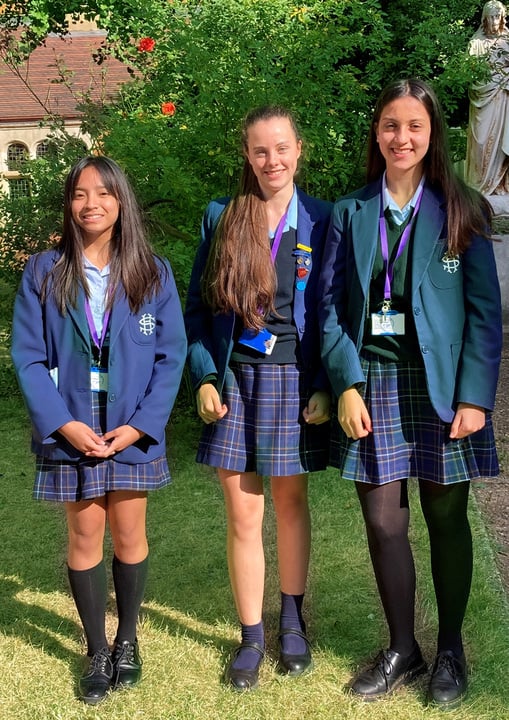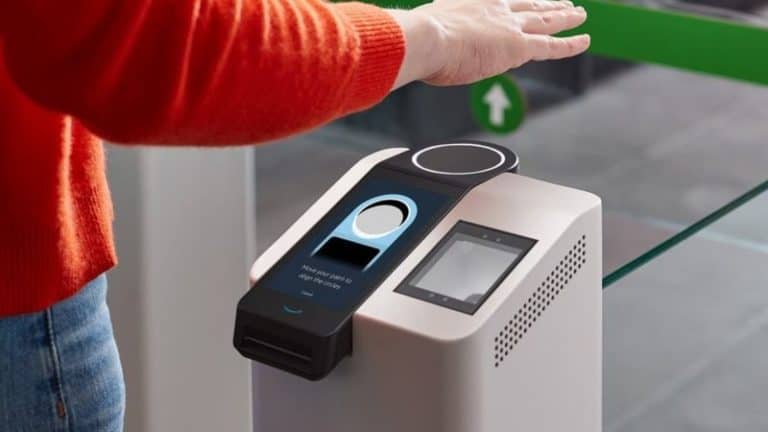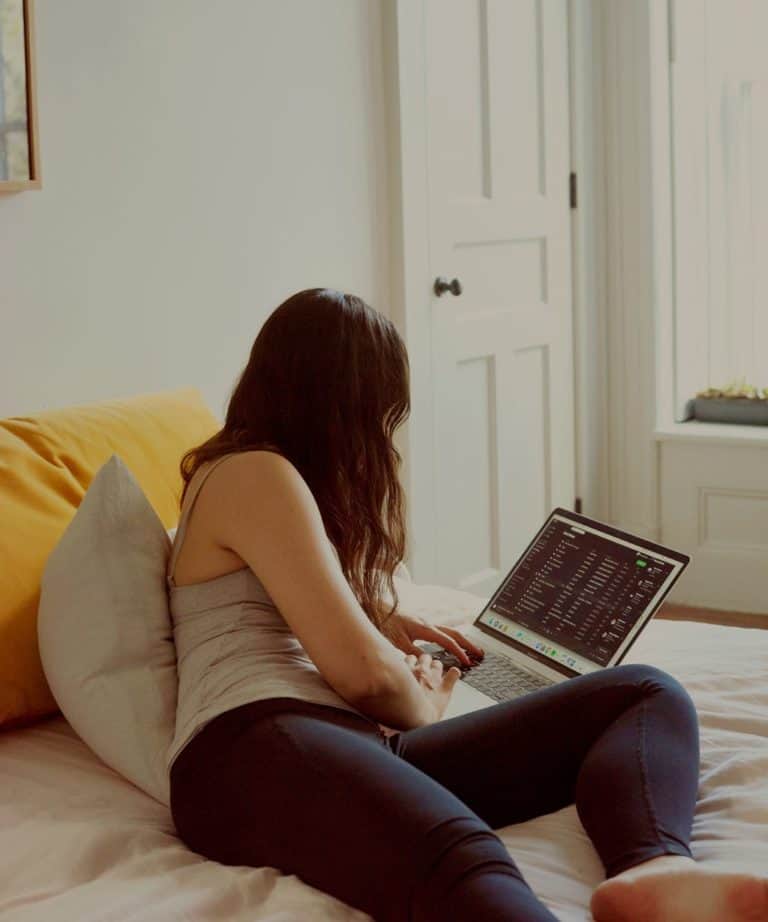Last Updated on
For the last 10 years, AbilityNet has held the Tech4Good awards in order to showcase organizations and individuals who “use digital technology to improve the lives of others and make the world a better place.”
This year, PC Guide caught up with the winners of the BT Young Pioneer Award 2020, which aims to recognize the young people who are making tech good again. From a Smart Stick designed by an eight-year-old girl to help blind people walk safely by themselves, to an app used to monitor clean and safe drinking water in Gambia and Senegal created by a group of 14-year-old students, the Young Pioneer Award has been granted to numerous excellent students who are harnessing this new, technological age to help others.
This year, the award saw a record 400 applicants, which is what makes the Dimming Dyslexia App – created by Dorothy (14), Sonia (14) and Justine (14) from The Sacred Heart High School in London – an all the more exciting win, especially in a year as turbulent as 2020.
The ‘Dimming Dyslexia’ app aims to help students with dyslexia, which affects around 10% of British individuals. By analyzing online text and other educational resources, the app will translate a range of resources into formats that are easier to understand for those with dyslexia. The app can present written text into videos, cartoons, alter font sizes, and colors on the page, presenting more dyslexic-friendly formats.
PC Guide: Tell us about why you decided to create this app and apply to the Tech4Good Awards?
Sonia: At school, we have friends with dyslexia and we often see them struggling with seemingly easy tasks such as reading and writing. We created the app to help make daily life easier for these people.
Dorothy: We have been working on this app for a year and a half after being inspired to help those around us who were struggling with basic literacy tasks and completing work. We first came up with the idea in April 2019 and applied for the Tech4Good awards a few months ago.
Justine: We also decided to enter the Tech4Good awards so we could learn new science and maths skills. But our main desire was to be able to share our idea with as many people as possible so we could eventually help others.
PC Guide: What do you hope the ‘Dimming Dyslexia’ app will achieve?
Justine: We hope that the app will make the lives of those suffering with comprehension disabilities easier and let them feel more independent and proud of their achievements.
Sonia: We hope that ‘Dimming Dyslexia’ will help millions of people across the education system by making texts more dynamic, visual, and clearer.
Dorothy: I hope that ‘Dimming Dyslexia’ will be able to make life easier for people. Living with a disability, whether a physical disability or a learning disability such as dyslexia can be very difficult. It would be amazing if our work would be able to make someone’s day, week, or month better and easier for them.
PC Guide: How far along are you with the process of getting the app developed?
Sonia: We are in the early stages of creating and developing our app. We hope to have a fully functioning app by next year, then we will continue to fine-tune it.
Dorothy: We currently have a visual model of our app that shows how we want it to work and demonstrates the concept and key features. However, we still have a lot of work to do before it is a fully functioning app which is definitely the hardest part!
Justine: Our next step is to develop its functionality so it can be used. We are doing this by building on the ‘placeholders’ we currently have which represent different aspects of the app.
PC Guide: Where did you start when it came to developing the app?
Dorothy: We began the design process by making a detailed plan of what we wanted our app to do; then we made a paper prototype using POP. We then used this to begin making a visual model using HTML, CSS, JavaScript and Python.
Justine: When developing our app, we started on more basic details that we knew we could do individually, such as simple lines of code we learned from computing lessons. In more complex positions, we asked help from our computing teachers, simple google searches, and YouTube videos.
PC Guide: Did you always have an interest in coding and computers or has this been something that you’ve discovered because of school?
Justine: Personally, I have always had a deep interest in coding and computing that came from my desire to pursue a job in the future involving STEM. Being able to use my knowledge from subjects that I enjoy excites me.
Sonia: My interest in coding and working with computers has developed through my involvement in making the app and joining the STEM club at school. It is extremely rewarding seeing the results through what you have made.
Dorothy: I had never used a computer until I was eleven when I started secondary school, as I went to a Steiner School. Through this project, I have gained an interest in computing and coding. I am taking computer science for GCSE and I am planning to take it for A levels, and maybe take my interest further into the future.
PC Guide: How do you feel now you’ve won the award and your ambition is going to be made a reality?
Justine: Winning the award was a surreal experience. This is something we are passionate about, so it is wonderful to be recognized by others and this adds to our determination to make this app a success.
Sonia: It feels amazing to have won the award. It is exciting that we can raise awareness and have the opportunity to help others around us who are struggling with dyslexia.
Dorothy: It is a great feeling especially since it will be beneficial to so many people and could change a huge number of lives for the better. We are so grateful for BT and everyone at Tech4Good and AbilityNet for making our dreams come true and giving us this opportunity.
PC Guide: It’s a very difficult time for everyone at the moment, especially young people who are trying to get through the education system. Has the recognition regarding the award given you a new direction i.e. do you see computers, coding, and technology as a new opportunity for you? A career path?
Justine: In my opinion, the recognition gained from the award has increased my passion and desire to go into a STEM career.
Sonia: Being involved in the Tech4Good awards has definitely influenced the career path I want to take and has opened up a new branch of opportunities for my future.
Dorothy: This project has given me a very different view of computers and technology. In the last two years, I have seen the good that can come from new technology, a lot of which I wasn’t aware of before. I am thinking of a career in computing and this project has opened so many doors and opportunities for me.
PC Guide: How do you think or should your and subsequent generations embrace technology (in particular with the rise of working from home and the environment)?
Justine: Technology has made tasks such as communicating with friends far more efficient and easier. I don’t think people should view the increased dependency on technology as a bad thing, because we’re moving away from traditional methods, but simply something we as a society are building to make lives easier for all.
Sonia: I think that everyone should look to embrace technology and the positive impact it can have.
Dorothy: I think that our generation really embraces technology and especially new developments. There is often a very negative attitude towards technology and although it can sometimes cause harm there is also a lot of good that can come out of it. Competitions such as the Tech4Good awards are an amazing way to bring this positivity to the forefront and inspire young people to do good with their skills and talents.
PC Guide: What advice would you give any budding coders and developers?
Justine: If you have a strong idea and passion to do something, try it! The initial steps are intimidating but as you keep working through it, you will realise it’s not all that bad. Failure is nothing to be ashamed of. We submitted entries to several competitions before winning this one. If you keep persisting, you will succeed. Also, do not be afraid to ask for help.
Sonia: I would strongly encourage any potential coders and developers to get involved and have a go. It is really satisfying seeing all of your hard work pay off and be able to see how your invention could help others around you.
Dorothy: Take any opportunity that you get. No harm will come from trying and you don’t know how far it will take you. Use the skills that you have and use them to help others. It may not seem much to start with, but even helping one person is something to be very proud of.
PC Guide: What’s next for you – more coding?
Justine: Next, we will contact other people to help us further develop our app into a good prototype. We need to decide how to budget the money we received from the competition, and how to use it to our advantage.
Sonia: As a team, we hope to develop our app further and get it on both the App Store and Google Play. We want our app to be widely accessible to everyone so it can have a positive impact on their lives.




